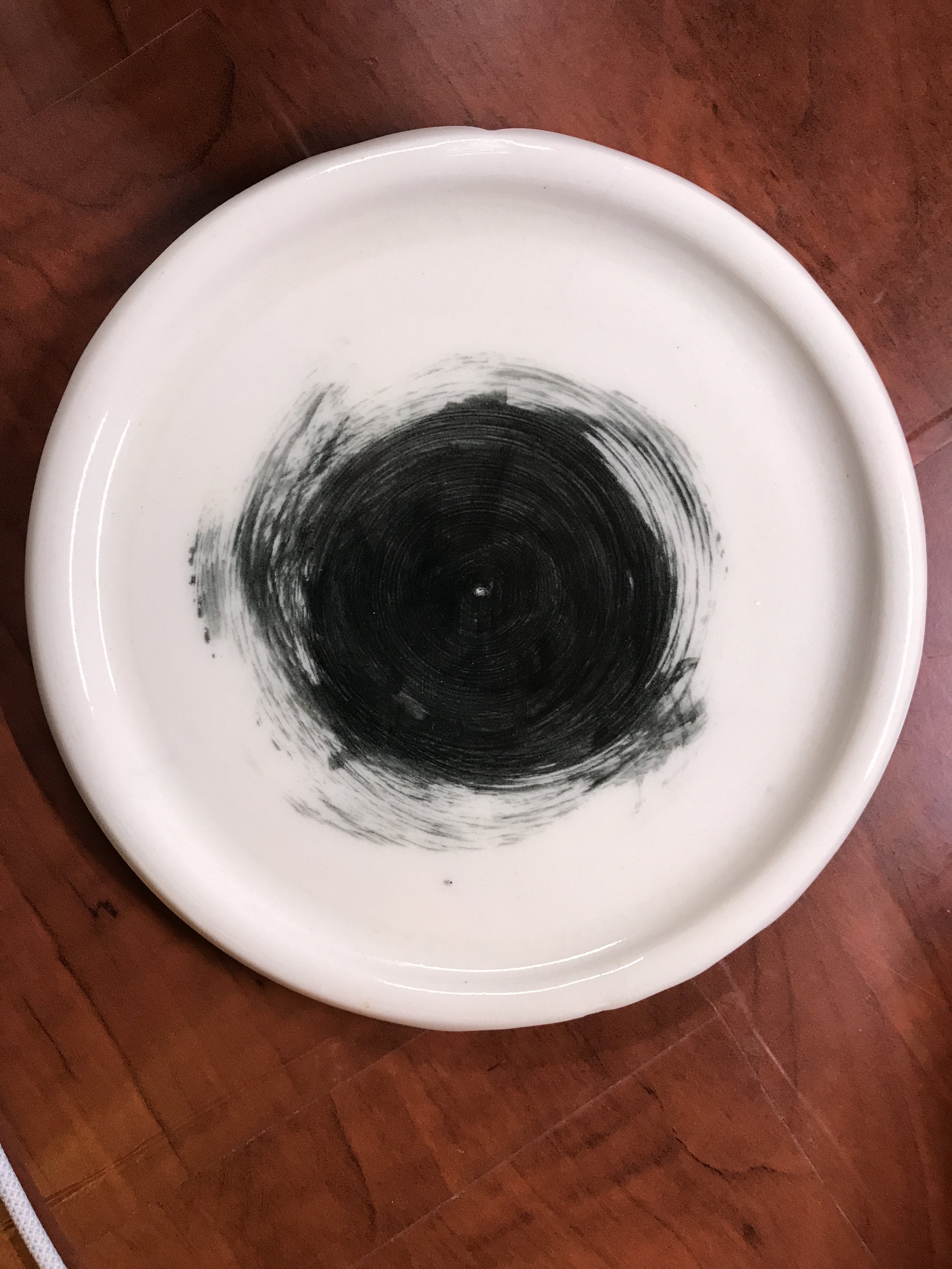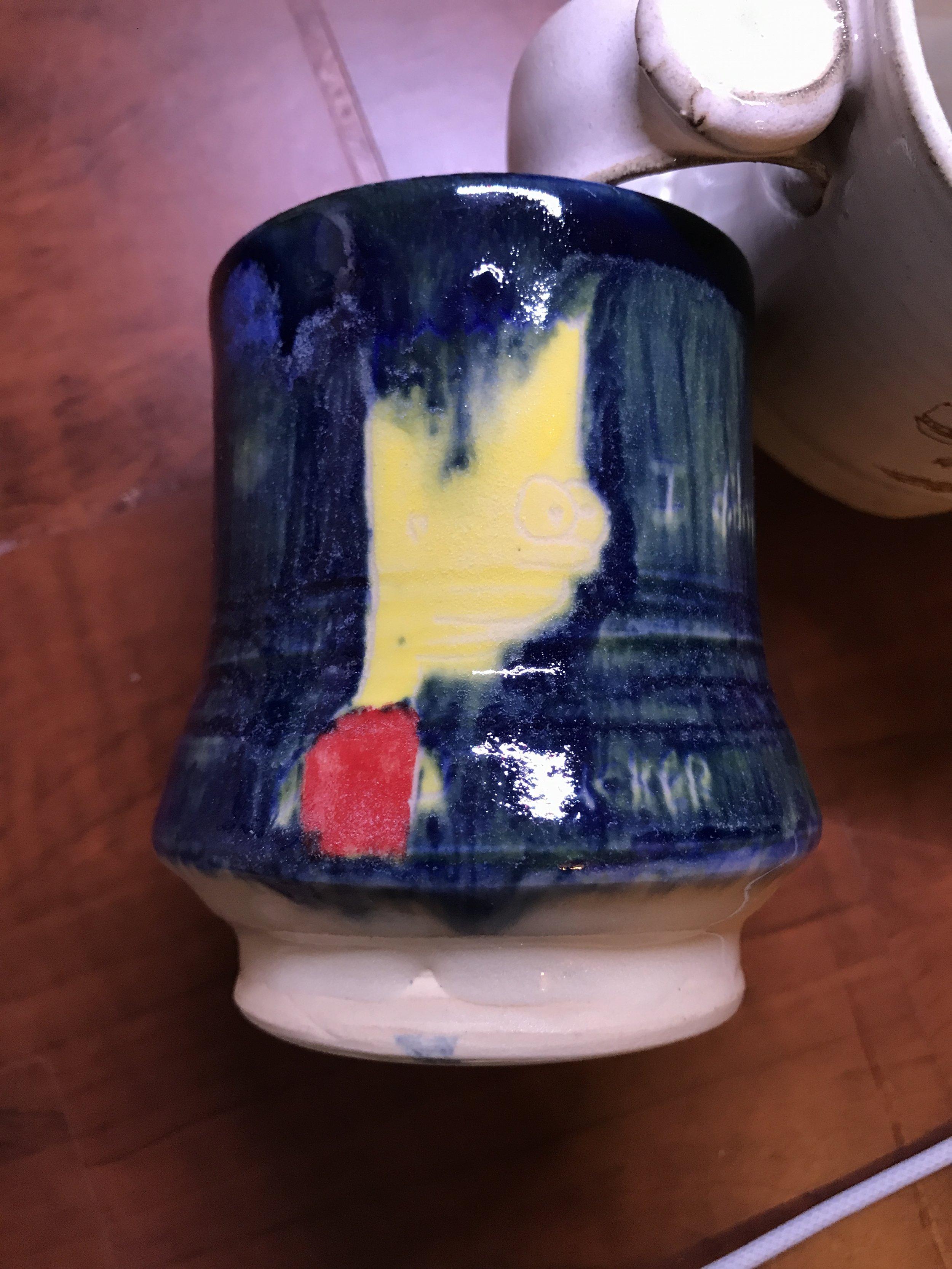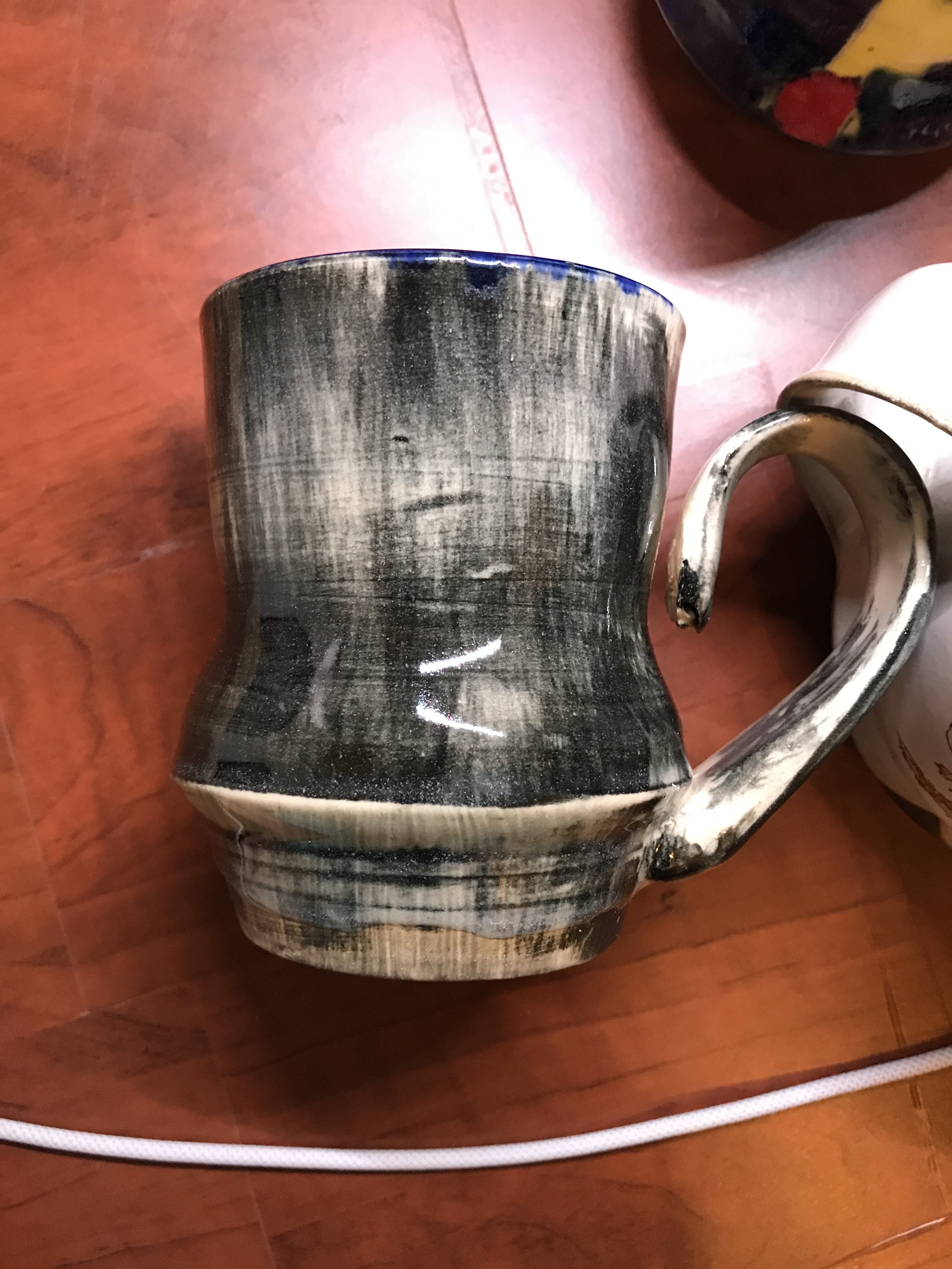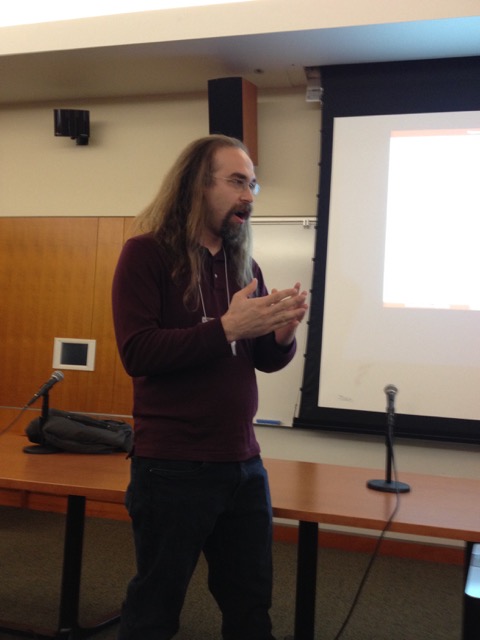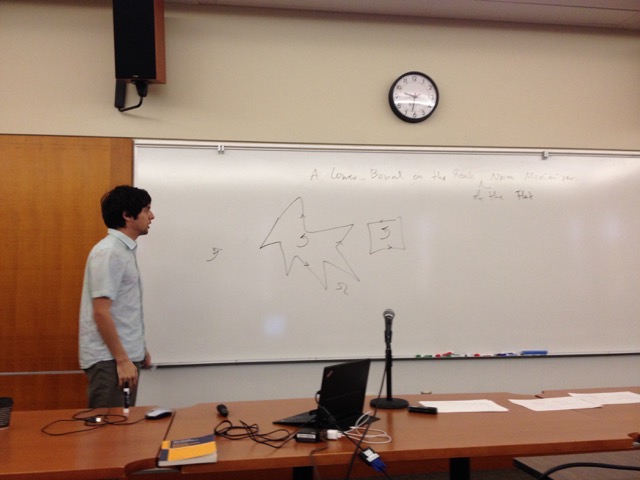Good times doing pottery. Fun. Addictive. Inspiring creativity
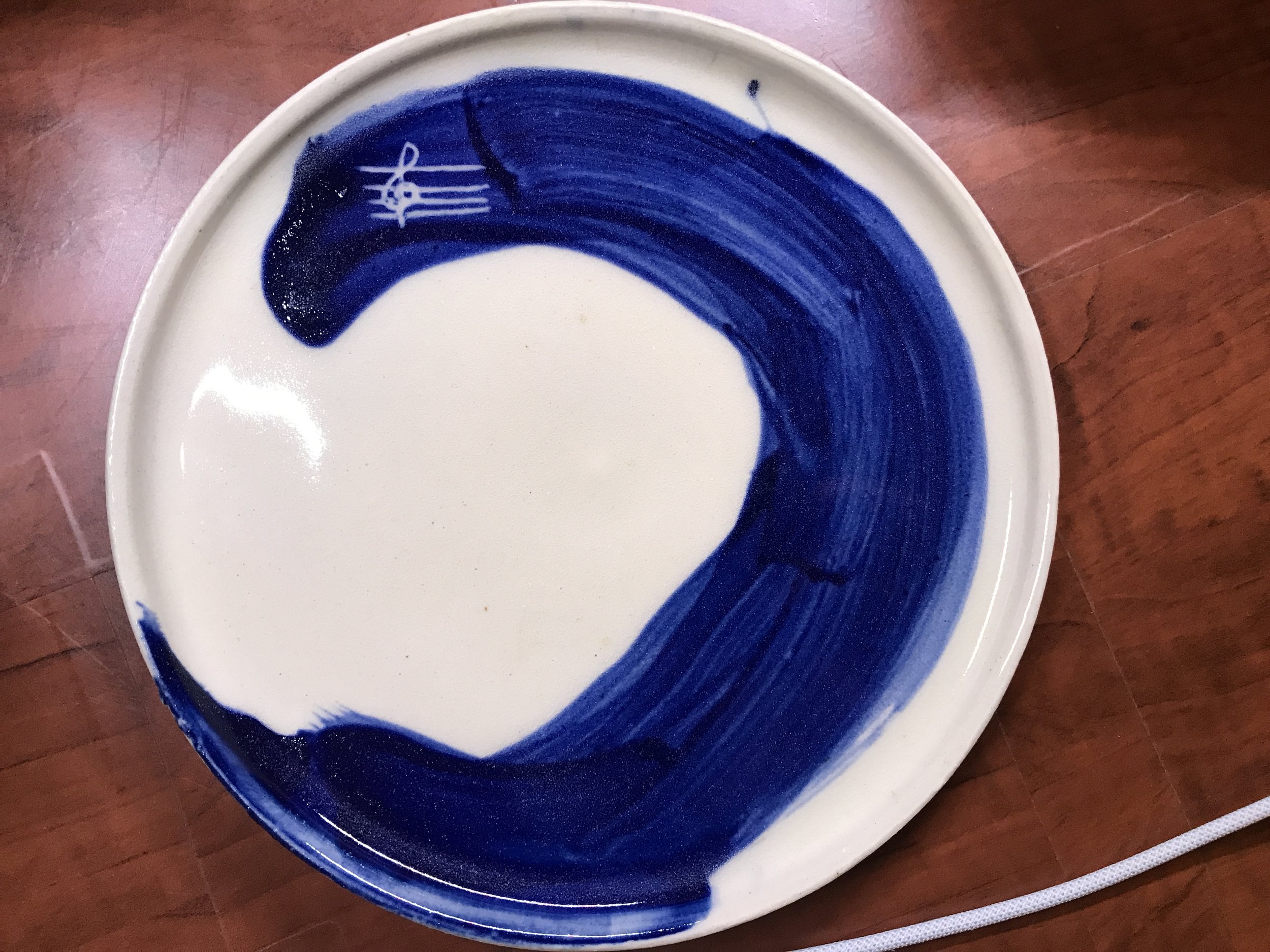
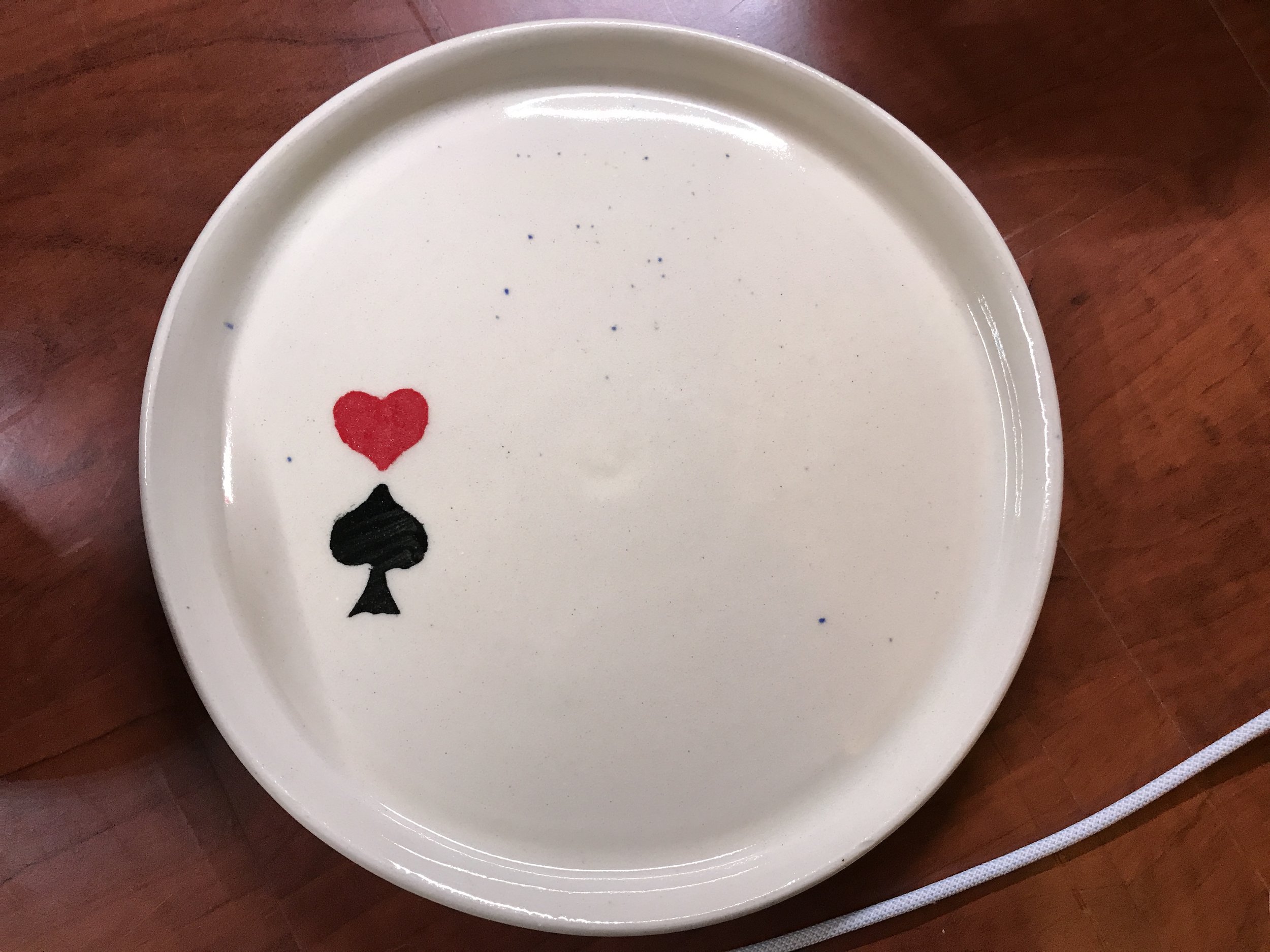
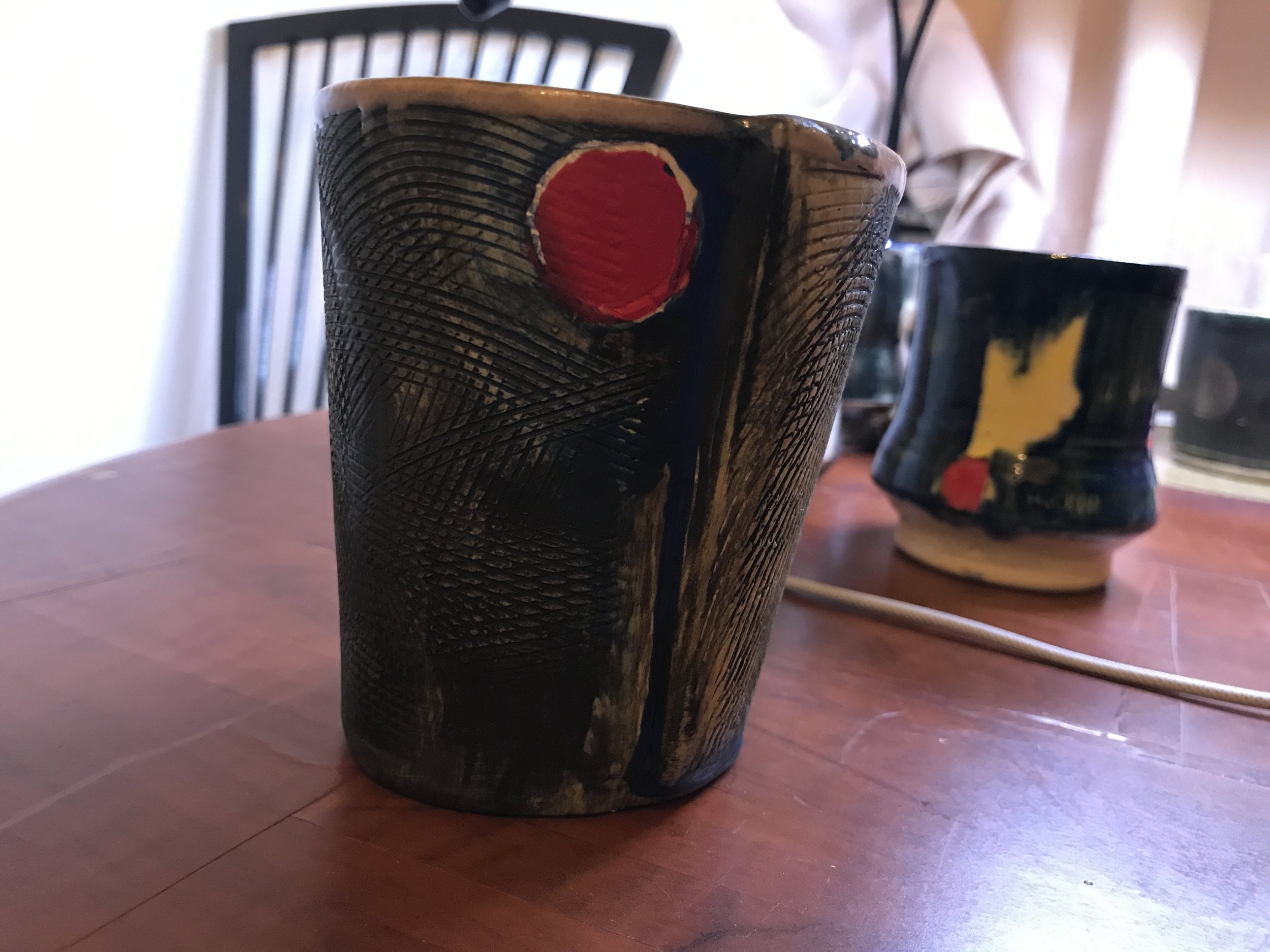
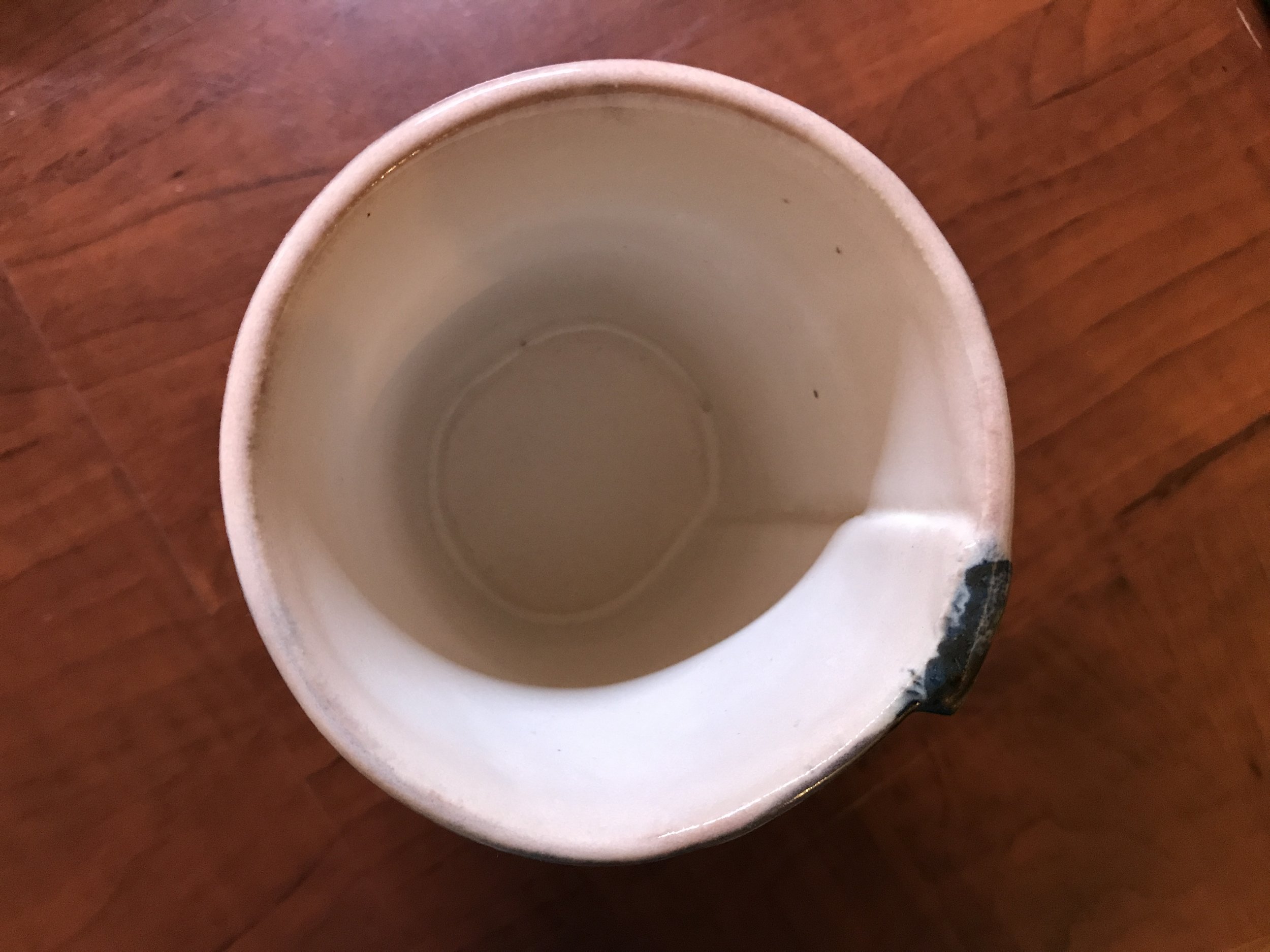
Freedom and Creativity
Being a TV whose remote control is in the hand of others, or being a horse whose rider tells it where to go kills creativity. You cannot go to places you have not been before, explore, find something new. Feeling restricted, being told what to do, kills sense of ownership which leads to frustration and giving up. In this environment, one cannot feel safe. Not being able to be vulnerable is uncomfortable on its own and furthermore, creates fear of failure. Again, new ideas will not be tried. Unfortunately, that is the way most places will be. It is not hard to imagine why. Cherry on top of the cake, people are driven by power, money, greed, and status. Coveting a Ferrari is identical to desire to publish in high-impact factor journals (in academia). Impact factor of 5 versus 5.1. One might be repellent to some and the other being admirable. That being said, I want my Ferraris and A. Lange & Söhnes. Perhaps The Culture Code: The Secrets of Highly Successful Groups and Dealers in Lightning: the Story of the Xerox Palo Alto Research Center PARC can teach both sides of the game something.
If you want to master a craft, you must submerge yourself in it. It must be your environment. Like diving to the bottom of the ocean. Walking in a forest for long hours; focused and blocking all the noise. You must be one with the environment. You should be the environment. If notifications and emails are your main environment and you try to pay a little attention the craft while being distracted and preoccupied … over time, little by little, you will fail. Your life will get away from you. Day by day a little miniature scar will be added to you without realizing it until it’s too late. The collection of the scars will be a trauma that will be irreversible.
September 5, 2023
Pullman is a Desert
Pullman is a desert. Washington State University which is the main reason for most people to be in Pullman is not a good university by stretch of any measurement stick. From basic human needs such as grocery stores and doctors to soul's food such as art and music, there are little to no options. It is not anywhere near being the center of science, technology, industry, art, fashion, or the melting pot of cuisine. There is no department store, Rolex authorized dealerships, car dealerships, or anything one shall desire. It is in the middle of nowhere. No fancy/connected/accomplished person is willing to come and visit; neither from academia nor from the industry. Pullman is a desert.
There are, however, some little pockets and islands of hope created by individuals. I do not know too many of them. I only know two.
One of these islands is maintained by Kevin Vixie. Kevin is a professor in the math department. Here is what Kevin built single-handedly or initiated and built it with others' help:
Analysis seminars in the math department on a weekly basis.
Mini Data Science Seminars that we had in an office. An office that we had rented for a year or two in Gladish. [Side Note: Gladish is an old school in Pullman that now rents out its offices most of which are Montessori schools. We, a small group of people from WSU, rented the biggest room in Gladish. I was there, alone, almost every day. We had puzzle-solving meetings there. Some students used it to get ready for the graduate qualifying exam. And, one or two data science seminars were hosted there as well.]
Distinguished Speaker Series In Data Science was done in collaboration with the CS department. This was done in 2015 and 2016.
Book Club events were held in his home until COVID hit and drove everybody insane, one way or the other.
iSciMath/iFinMath/CDLG A group of people in academia collaborating together to lift each other up in an academic sense; seminars, solving problems, etc. A white paper explaining the philosophy of the group.
TradeSmith Labs was built in Pullman. TradeSmith is a finance company founded by Richard Smith. The lab was dissolved after TradeSmith got new CEO and Richard Smith moved on to build his new company. Richard has founded and grown a few successful finance companies and is one of the partners of the new start-up, iSciLabs, built by Kevin.
iSciLabs A brand new start-up.
``I will treat you the way I like my son to be treated if he was abroad'' is what Kevin told me when we were talking about an issue in my very first year in the US. That is the island maintained by him, but, I do not know how much the man can carry!
During the time that Pullman, academia, and/or life is trying to kill your spirit, childlike playfulness, and creativity, having a hobby is useful. Science and art are not that different. Imagination is used in both to create a thing, bring an idea to life. The time is taken to let the imagination and reasoning walk through unseen places. Spending time in the weeds and microscopic levels of courses, the way mathematical ideas are taught or written, or life in general, can kill the creativity and soul. Fear of failing or being exposed may run deep even without realizing when or how it happened. Doing handwork projects can nourish creativity and be a peaceful outlet, keeping the child-like spirit alive. Imagination is the most important/attractive quality man may have; Great scientists (Newton, Einstein) see the big gaps and fill them the way great musicians (Mozart) create a new genre or fill a gap in tech and market (Steve Jobs and Elon Musk). Great authors write books (movies) that become bestsellers; they just suck you in and make you obsessed. When you decide to use a hobby to build a wall between you and the desert, you can walk into the island of Kassie Smith. She is a potter in the area. She teaches ceramics at WSU and has pottery classes at the Barn in Uniontown, WA. If you can afford to have the tools needed for pottery that is an option. Or maybe just going to classes is fun. If not, you can own pieces she makes by visiting her booth in Moscow's farmers' market.
If you do not live in the area, you need to wait till winter hits. Then, if you are lucky you can order them on her website. Here is her Instagram. Some of the selected pieces are seen in the gallery below. (The story behind the name of each piece is that potters around the globe had a 30-day event. On each day they made an item inspired by a topic. If you look for #30platesin30days on Instagram you can find the products.)
I am not aware of other islands as I have not sought them. But I wonder how many of them exist ... in this desert.




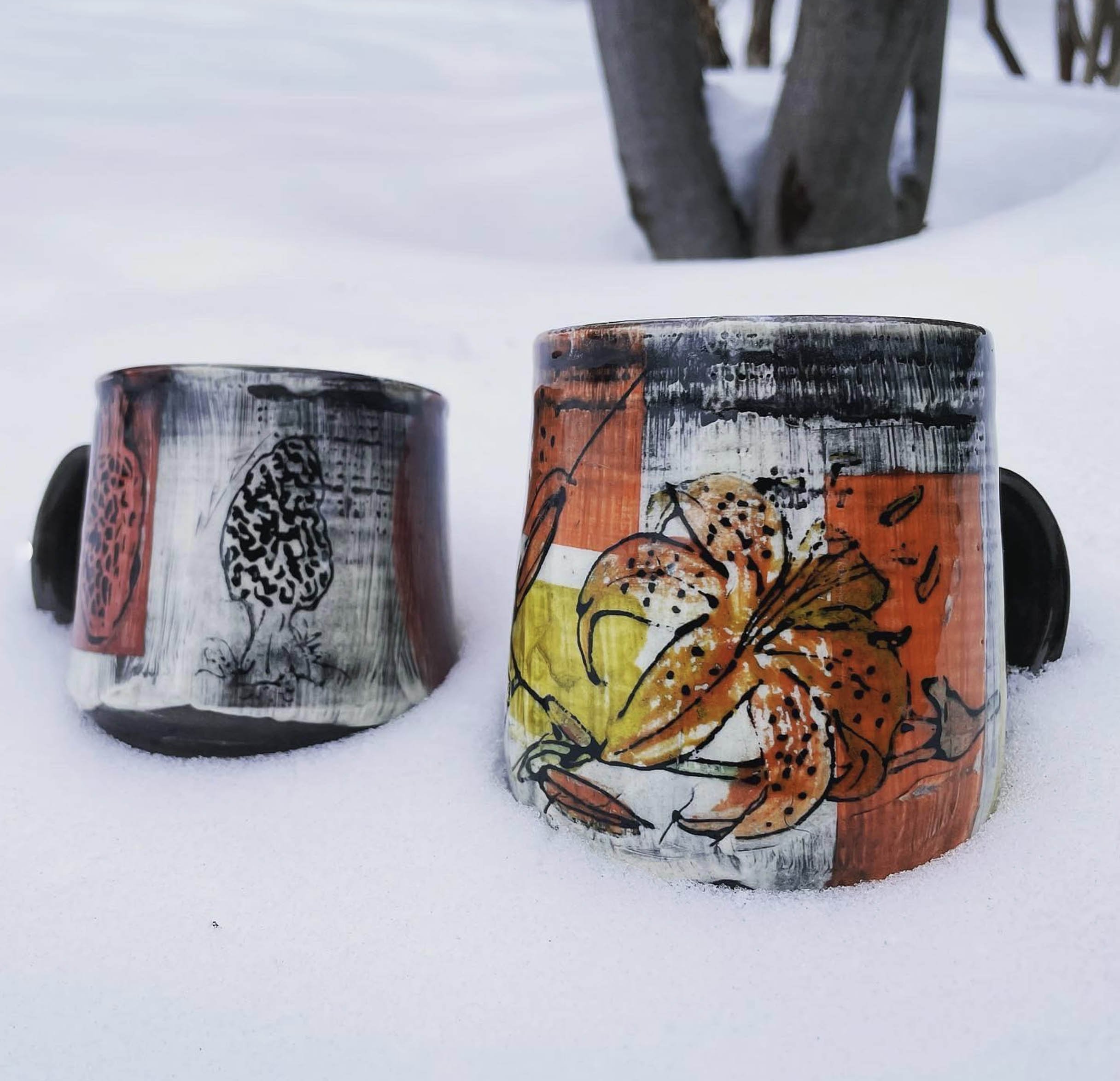
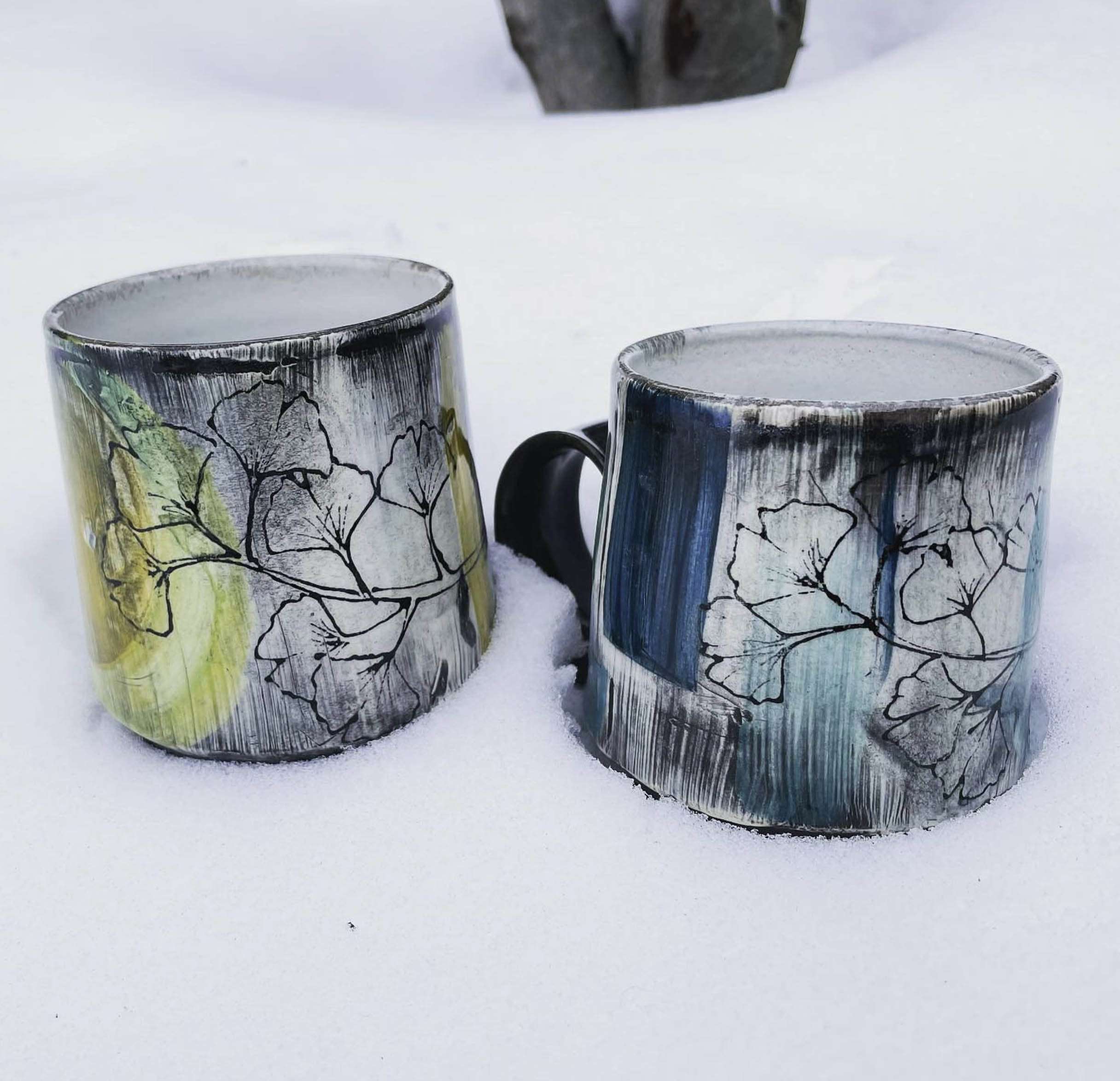
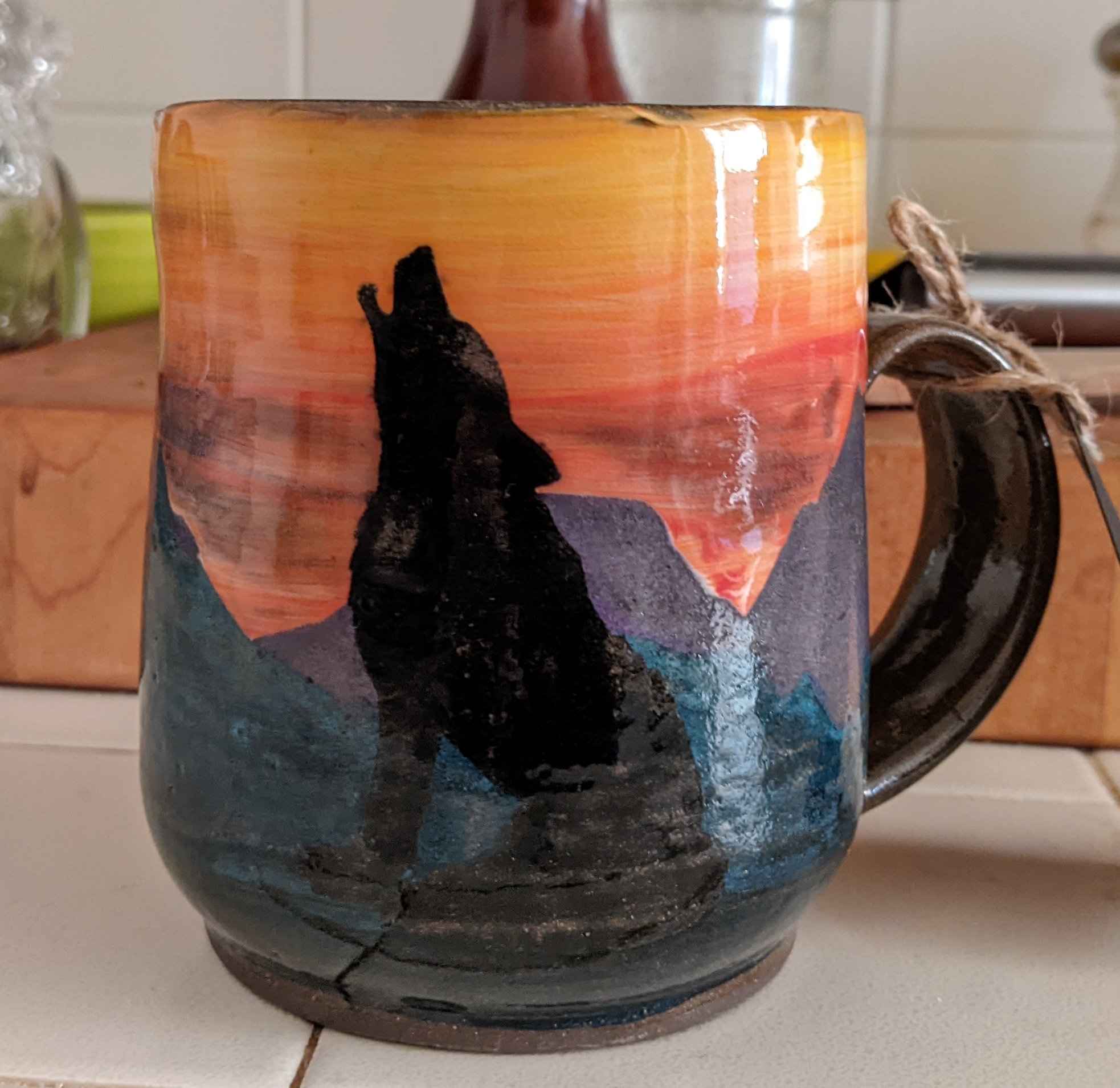
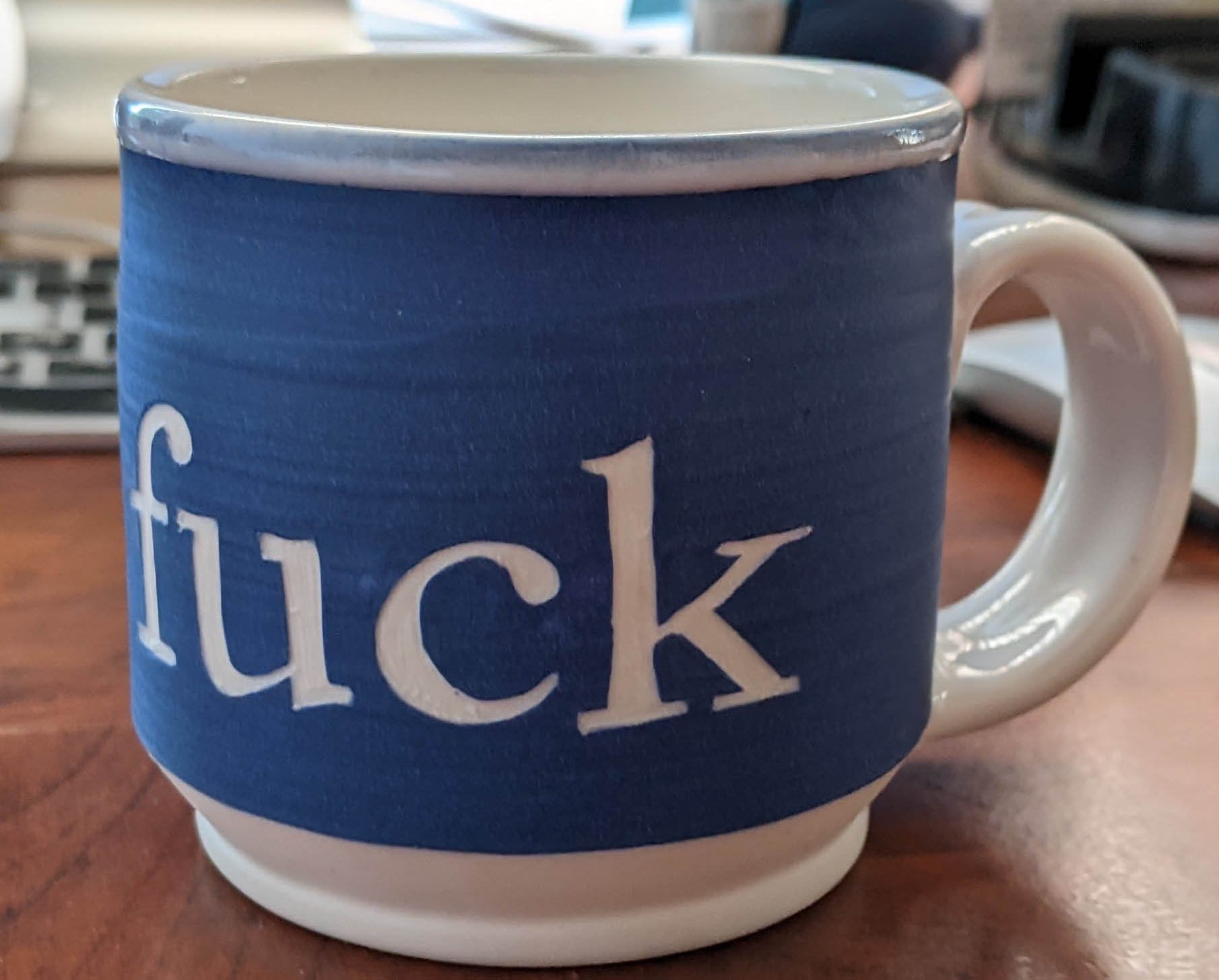
Our paper written for Cycles.org is out now! Vol 50 No 4 2021: https://journal.cycles.org/Issues/Vol50-No4-2021/. There are some pictures of the team and the supporting member, Oliver the Poodle, below. We won the competition. A short while later, the four of us also created a little tool for diversification and allocation for investment in stocks.
We and a few other people are currently working on a new project that potentially can fund a start-up. New posts will be here on that soon. Meanwhile, a little bio. about the 4 members who wrote the paper for Cycles.org:
Michael Forbes (on the left) is a physicist at WSU. He studied computer science and physics at UBC in Vancouver BC, drawn by the interdisciplinary Science One program. He obtained his Ph.D. in physics at MIT under Frank Wilczek who was awarded the Nobel Prize in Physics while Michael was studying with him. Michael moved on to a postdoctoral position with the Nuclear Theory Group at UW, a Director's Funded Fellowship at Los Alamos, and as a five-year research-assistant professor in the National Institute of Nuclear Theory at UW. He is now a professor of physics at WSU in Pullman, WA. His expertise and interests in physics are wide-ranging, including the study of quantum dynamics in nuclear astrophysics by using cold atoms experiments as analog quantum computers and using geometric insights to teach both quantum and classical mechanics.
Gary Sandine (second from left) and Kevin Vixie (on the right) have been collaborating since about 2000 when they were both graduate students at Los Alamos. Gary obtained both a bachelor's and master's in mathematics in Portland, Oregon, after which he was invited to Los Alamos by Kevin who was there working on his dissertation. They worked together until Gary left the lab to start his own Linux computer company (one of his customers of note was Linus Torvalds, inventor of the Linux kernel), and he has been working professionally using the GNU/Linux platform for nearly 25 years. Gary is now an associate director in the Office of Information Technology at Portland State University and is finishing a Ph.D. in Mathematics in his spare time. His focus for that work is convex analysis and optimization in infinite-dimensional spaces.
Kevin had a meandering path to his current position as a professor at WSU that included a BS in mathematics from Walla Walla University, house construction, work on a seed research farm, private junior high school teaching, a master’s degree in Applied Physics, running a lab in micro-circulation research at a medical school and a Ph.D. in mathematics completed at Los Alamos, after which he started the first “Big Data” team at Los Alamos. His interests range from geometric measure theory, geometric analysis, and high dimensional data, to environments for innovation and methods for teaching mastery of difficult insights for broad audiences.
I, Hossein, got my bachelor’s in mathematics I came to WSU. Worked on numerical linear algebra and then the opinion dynamics model. Currently, I am a postdoc with biological systems engineering at WSU. I am focusing and pushing on learning analysis (real analysis, measure theory), image processing, and statistical learning every single day.
The place I have lived in for too long where some good memories were made. Click on the image for a short video!
Bob Kramer: At the Edge;
The interesting and inspiring story of Bob Kramer’s life; how a dyslexics kid found his way. He uses meteorites to make his knives that sell for $30,000. He used AR 15 barrels after the Parkland shooting to make kitchen knives as well. Below are some of his gorgeous knives taken from his website (https://kramerknives.com/knives/gallery/) that includes his most recent artworks.







Ethics or Practicality
Recently I submitted my survey paper to a Information Fusion journal. The decision letter I got is:
The most serious shortcomings of the paper are the following:
- There is no clear focus on the Information Fusion, which is fundamental to the journal.- There are discrepancies between the abstract of the original paper and the abstract of the cover letter. The work is not completely clean, there are errors and typos in text and references. The work, before submitting to a journal, must be checked and purified 100%
However, I just did not use their terminology. The concepts of my paper and journal are identical. In fact, a paper very similar to mine with the exact same classical models were published in the journal (2 or 3 years ago). So, I wrote back to the editor, your main reason is not valid here is an example. He wrote back:
Regarding to the mentioned paper, it was my personal invitation to the main author, Prof. YYY, a top recognized author in the topic, due to we have not published any previous overview in the topic.
And I responded:
I am not arguing or asking for a reconsideration of my work, but I am stuck between
(a) Ethnics and avoiding gift authorship and (b) being practical and getting my paper published by putting a professor's name on my paper.
As it turns out the editor is a friend of Prof. YYY and they have co-authored papers together. Maybe my paper was not good enough, but we cannot deny all these games!!!
My paper “From classical to modern opinion dynamics” got accepted in International Journal of Modern Physics C (on March 26 and is still in the typesetting stage, thanks to Covid-19). I submitted a survey in opinion dynamics field “Recent advances in opinion propagation dynamics: A 2020 Survey”, and another paper related to impact of Covid-19 on power grid operations and how ML can be helpful; “Data-driven Operation of the Resilient Electric Grid: A Case of COVID-19”.
With so many wrong measurement sticks (e.g. publish or perish). When you are stuck in a team whose least concern is publication and the 10 people next door do the gift authorship. When the “ethnics” says do not do gift authorship but your paper might get rejected because you are not well-known. It is hard to find the sweet spot in the trade off between morality and practicality, is not it?
I have written a little note, about focusing on what you want, the noises around you, which may be discouraging. Please take a look:
The faster we move, the more contentious we are, the louder and louder we try to communicate. The more stress, the more mistrust, the less we listen, tweeting gets out of control …, more and more condemnations are heard, people trying to prove points, less receptivity.
"A person in congress gets up to speak, says nothing, nobody listens, and then everybody disagrees."
This is the first video of Tara I watched, it is very good . I will continue watching her, you should too.
A Note on Graduate School, Post Graduate Life and Their Challenges
I have graduated recently from graduate school. I would like to share some of my experiences, my friends' experiences from my point of view and my opinions formed by those experiences and observations. This note includes some points about the graduate school and what may follow.
Read the full note here, please.
Education
A few years ago, the book excellent sheep was handed to me by my advisor. I loved it and I will be using it as an excuse to write this note. I encourage everyone to read the book.
This note will have different dimensions to it. Education, higher education, education in the US, US and international students, flocking behavior of people and some examples of my own experience to support it.
Before starting to talk about how colleges function, I have to admit finding passion is a hard task. There is no static pre-defined procedure that one has to go through to find his/her passion. It is more like an accident, people have to be exposed to many different subjects till they find the passion.
And also there are some practicalities. The man has got to eat. So, most people are not prepared to pay the price of following their passion and prefer to play it safe.
Let's first see how education system is looked at in the US. Universities are looked at like a business, an opportunity to make money. Hence, at least two groups of people are suffering. Faculties and students.
First group are the students. Main purpose of education, is education! When there are 120 students in a class the quality of education is gone. Among those 120, most do not know their passion. They are there due to flocking behavior imposed by social norms where people are expected to have a degree, for having a job and being respected. They are being taken advantage of because they are being looked at like customers for their money.
Faculties are under a lot of stress due to different reasons. One is pressure of raising funds and having a high status. [Status on its own is a separate topic to talk about.] Another reason of pain, for the faculties who care, is that in such environment incompetent students expect them to pass them. (Just watching students who do not like what they are doing is painful, let alone dealing with the issue.)
For example, some Persian Gulf states have a contract with WSU to send their high-school graduates to WSU. They pay students (about) $2,000 monthly. They mostly copy each others' work or off the internet. I have seen solutions of HWs that are too well written. Even for a math major native English speaker. Another student of mine emailed me, lectured me about how good he is and that he has taken the course before and that he is on some athletic team activity, asking me for permission to not attend to the class for the first week. Then he showed up asking me how to multiply two matrices!!!
For this particular class, on the final exam, there were 7 questions of which 3 were from their HW and 3 were asked by the students the day before the exam. Most failed, and complained!
Another educational weakness in the culture is that most American students' expectations are set wrongly in high-school, I guess. They expect me to teach them 2+2=4, and hold a review session before exam and ask them what is 2+3=? and on the final exam I ask 2+4=?, otherwise, there would be complain.
Another issue I would like to mention is the international students. I do not have a hard evidence and a real statistic, but I think they mostly are using graduate school to get out of their own country for different reasons. So, the situation is pushing them through such streams not love for science or education. Going to graduate school like that is not specific to international students. When recession hit the America number of Americans going to grad school increased too. Some people may think it is a win-win game, they get to live in the US (or any country of their choice really) and US makes progress, I do not.
I conclude, for now, to live a happy life, be creative and prevent the death of soul, one needs to follow their passion and think before being carried by enormous and powerful flow of social norms.
Here is an interesting link about math education in the US. Here is another link about Notes On PhD which I also typed it up. You can download its PDF. Another interesting PDF file about choosing an advisor.
Read/Watch More
Thoughts on Vegas, and Why Men Keep Doing This. No Time To Think. A Google talk.
Meetings
Initially, I had a page for Meetings. However, COVID and politics (/rules-and-regulations in academia, separately, even without COVID) make it hard for individuals to build things. Moreover, I am not a part of the math department anymore. So, there would not be much to post there. Consequently, I merged that page with this one.
History: Back in 2015, Analysis + Data Group in collaboration with the computer engineering department hosted a series of talks, Distinguished Speaker Series in Data Science. And then in 2016, the group initiated its first annual Data Science Day. In 2017, we organized the second Data Science Day. It was very exciting, people from all sorts of disciplines participated. You can see the list of participants, where they came from, and what they talked about here.
The AMS 2017 Spring Western Sectional Meeting was held at Washington State University in Pullman, Washington. Analysis + Data Group organized one part of it, Geometric Measure Theory (GMT) talks. AMS meetings do not include poster sessions, but we did it! We interacted with AMS and convinced them to have a poster session at WSU.
Unfortunately, the mathematics department (of WSU) is not connected to the industry. So, we are not exposed to real-world problems (through our graduate life via the research projects we do for dissertations). Data Science Day provides an opportunity to have people from industry and/or other departments talk about what they do. Personally, it is exciting to see what other people do, what the industry is looking for. And having people from other disciplines and other departments is exciting and instructive and generates a rich environment. It helps to learn new things, see how other people think, and hence, it reduces our bias.
Moreover, on the side of the Data Science Day in 2017, we were privileged to host a set of panelists from Intel, LANL, PNNL, UCLA, etc., to discuss the transition from academia to industry, expectations set by the industry, and have them answering students' questions.
I think this sort of activities, both Data Science Day type meetings and panel type events, have to happen at least once a year, but, unfortunately, it does not. Especially in WSU which is remote and not a lot of people come to visit us. So, having such events helps for both learning and networking.
P.S. I have a bad habit of deleting everything. If I find photos from past events, I will post them here.
Poster session of AMS meeting and panel discussion for job/internship in industry.
Geometric Measure Theory talks and room preparation for AMS Meeting.
On the first image, Bob Hardt from Rice, Jean Taylor of Courant Institute and NYU, and on the right Andrew Fraser from LANL accepted the invitation to the event. They are cool and funny people.
When I was in the math department, a bunch of graduate students and my advisors, Kevin Vixie and Matthew Sottile, rented an office in a building called Gladish. The building used to be a school before. Now they rented the offices. Lots of them are Montessori schools. Lots of kids went in and out of their classes in a line which was fun and cute.
We turned a whole wall (top to bottom, left to right) into a big whiteboard. One piece of it is in the photo below. A few of us were gluing the boards to the wall at a time and it kind of looked like this which I imagine was funny for someone walking by.
I was the main user of the office. We had a camera and a projector to use for meetings with people outside Pullman. A few students used the office and camera to prepare for the qualification exam. And we held one or two meetings where people from different disciplines gave talks to educate others and get feedback if they needed help from others.

